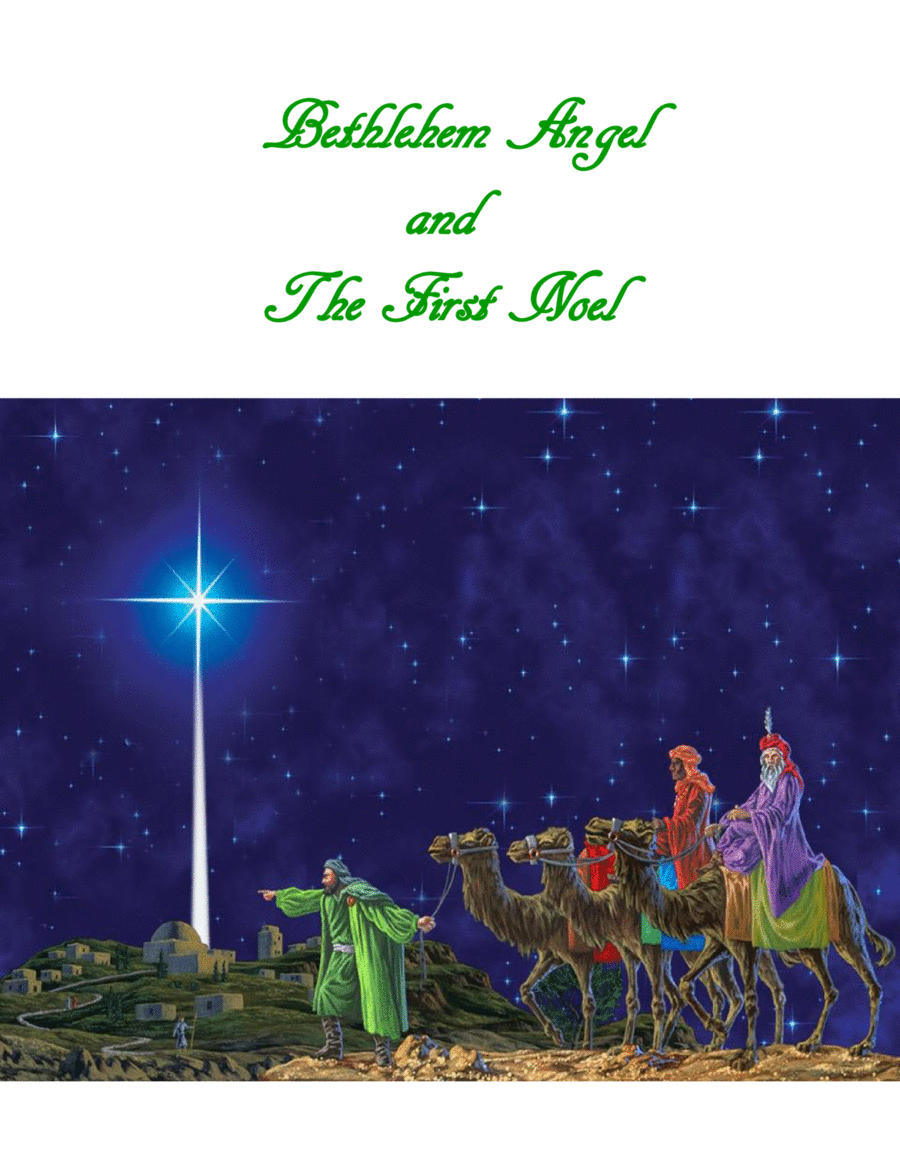Small Ensemble Flute,Piano,Voice - Level 3 - Digital Download SKU: A0.889815 Composed by Ginny Saltzman (Bethlehem Angel) and The First Noel - Traditional. Christmas. Score and parts. 9 pages. Ginny's House of Music #4362443. Published by Ginny's House of Music (A0.889815). *Bethlehem Angel and The First Noel This is a very beautifully flowing presentation which includes both an original work by this composer entitled Bethlehem Angel and an arrangement of The First Noel. It includes scriptures and lyrics. It was written for flute, guitar, voice, and piano accompaniment on Intermediate Level.  It is based on the scriptures Luke 2: 8-11 --- And there were in the same country shepherds abiding in the field, keeping watch over their flock by night. And, lo, the angel of the Lord came upon them, and the glory of the Lord shone round about them: and they were sore afraid. And the angel said unto them, Fear not: for, behold, I bring you good tidings of great joy, which shall be to all people. For unto you is born this day in the city of David a Saviour, which is Christ the Lord and Matthew 2:1-10 ---- Now when Jesus was born in Bethlehem of Judaea in the days of Herod the king, behold, there came wise men from the east to Jerusalem, Saying, Where is he that is born King of the Jews? for we have seen his star in the east, and are come to worship him. When Herod the king had heard these things, he was troubled, and all Jerusalem with him. And when he had gathered all the chief priests and scribes of the people together, he demanded of them where Christ should be born. And they said unto him, In Bethlehem of Judaea: for thus it is written by the prophet, And thou Bethlehem, in the land of Judea, art not the least among the princes of Judea: for out of thee shall come a Governor, that shall rule my people Israel. Then Herod, when he had privily called the wise men, enquired of them diligently what time the star appeared. And he sent them to Bethlehem, and said, Go and search diligently for the young child; and when ye have found him, bring me word again, that I may come and worship him also. When they had heard the king, they departed; and, lo, the star, which they saw in the east, went before them, till it came and stood over where the young child was. When they saw the star, they rejoiced with exceeding great joy.Â
